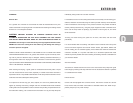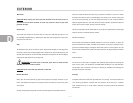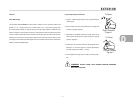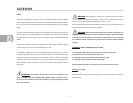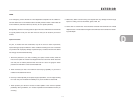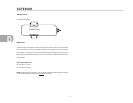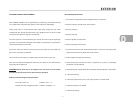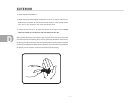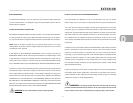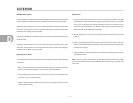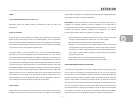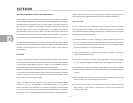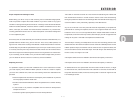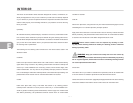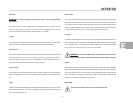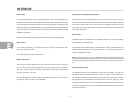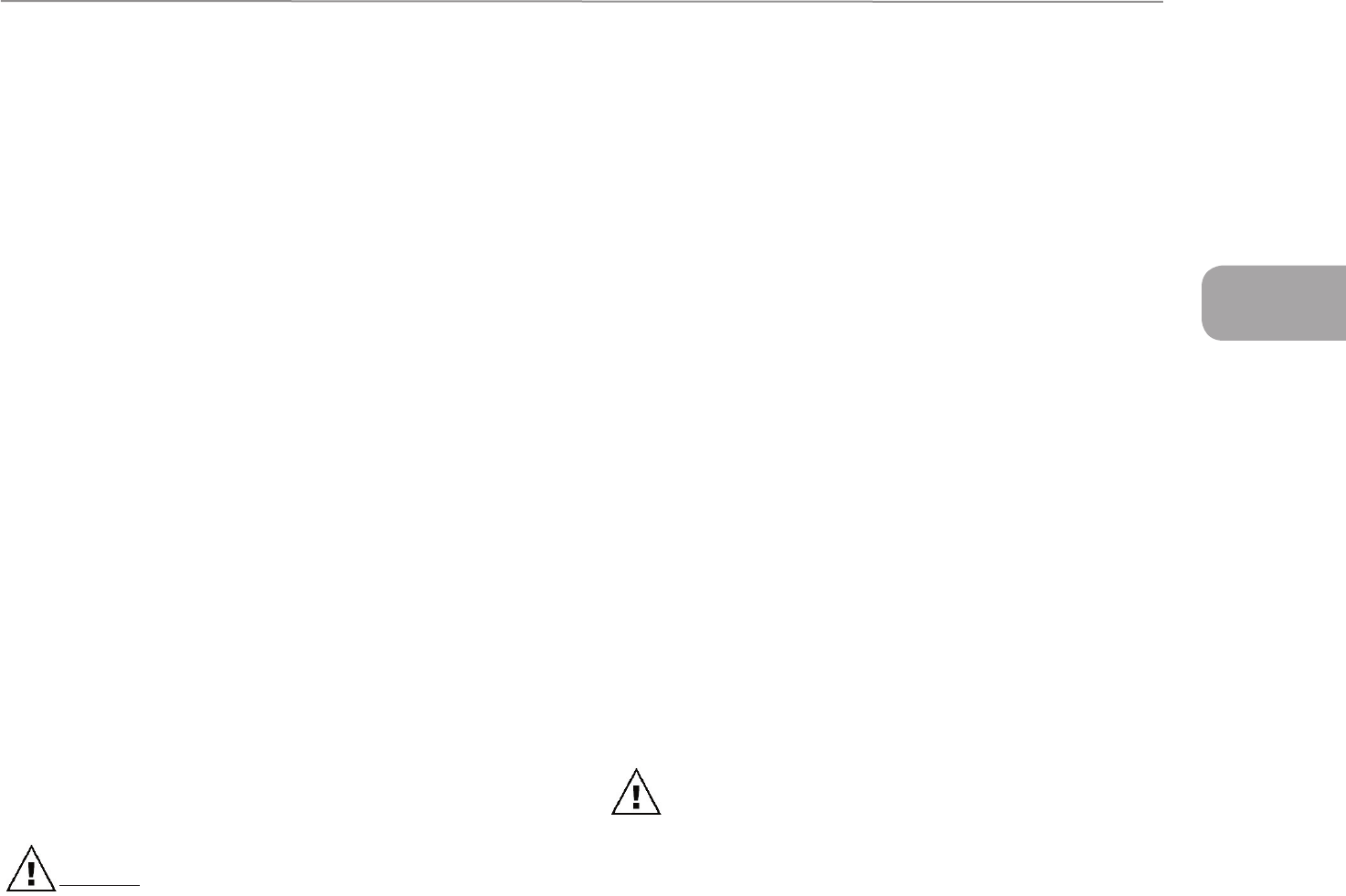
D
D - 9
EXTERIOR
ELECTRIC BRAKES
A CONTROLLER installed in your tow vehicle will synchronize the trailer brakes with
your tow vehicle brakes. It is designed to apply the trailer brakes whenever the tow
vehicle brakes are applied.
TYPICAL ELECTRONIC CONTROLLER
ELECTRONIC CONTROLLERS are inertially activated. The controller senses decelera-
tion and generates an output, which reflects the inertia sensed. When you are station-
ary, the controller does not apply the brakes unless the manual slide bar is activated.
NOTE: Study all material provided with your particular brake control. If you don’t
understand the information, have the installer explain the information to you or call the
manufacturer of the controller.
In THE EVENT OF AN ACCIDENTAL SEPARATION of the tow vehicle and trailer, the
BREAKAWAY SWITCH will set and lock the trailer brakes for a sufficient length of time
to stop the trailer. The switch is activated when the wire attached to it and to the tow
vehicle pulls out the small pin in the front of the unit. THIS PIN SHOULD BE PULLED
OUT, LUBRICATED WITH LIGHT HOUSEHOLD OIL AND REPLACED EVERY 90 DAYS.
To prevent corrosion within the breakaway switch, pull the switch’s pin straight forward
and spray the inside of the switch through the hole with an electric contact cleaner
(such as Spra-Kleen) and reinsert the pin. A drop of light household oil on the groove
near the base of the pin will allow the pin to operate freely. WHEN THE TRAILER IS
CONNECTED TO THE TOW VEHICLE, THE BREAKAWAY SWITCH LOOP SHOULD
BE ATTACHED TO THE PERMANENT FRAME OF YOUR HITCH. When disconnecting
trailer from tow vehicle remove wire loop from the frame. DO NOT REMOVE PIN FROM
SWITCH BECAUSE THIS WILL APPLY THE TRAILER BRAKES.
WARNING: Do not use breakaway switch for parking brake.
HOW TO USE YOUR ELECTRIC BRAKES PROPERLY
Your trailer brakes are designed to work in synchronization with your tow vehicle
brakes. Never use your tow vehicle or trailer brakes alone to stop the combined load.
Your trailer and tow vehicle will seldom have the right amperage flow to the brake
magnets to give you comfortable, safe braking unless you make proper brake system
adjustments. Changing trailer load and driving conditions as well as uneven alternator
and battery output can mean unstable current flow to your brake magnets. It is there-
fore imperative that you maintain and adjust your brakes as set forth in this manual,
use a properly modulated brake controller, and perform the synchronization procedure
noted below
In addition to the synchronization adjustment detailed below, electric brake controllers
provide a modulation function that varies the current to the electric brakes with the
pressure on the brake pedal. It is important that your brake controller provide ap-
proximately 2 volts to the braking system when the brake pedal is first depressed and
gradually increase the voltage to 12 volts as brake pedal pressure is increased. If the
controller “jumps” immediately to a high voltage output, even during a gradual stop,
then the electric brakes will always be fully energized and will result in harsh brakes
and potential brake lockup.
Proper synchronization of tow vehicle to trailer braking can only be accomplished by
road testing. Brake “lockup, grabbiness, or harshness” is quite often lack of synchro-
nization between the tow vehicle and the trailer being towed, too high of a threshold
voltage (over 2 volts), or under adjusted brakes.
WARNING: The braking system should be checked and serviced by
qualified, certified technicians only. Failure to do so could result in loss of control
of your vehicle or the trailer causing damage to property, injury, and/or death.



